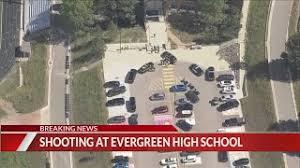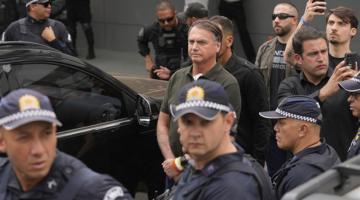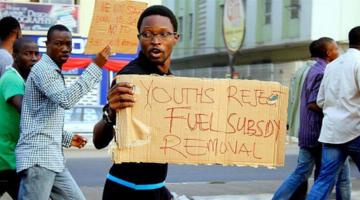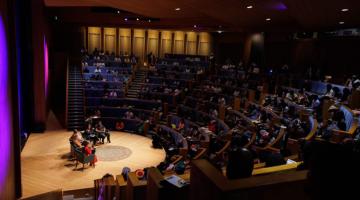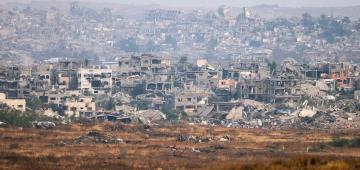Liberal reforms continue to fail to make the police more accountable.
“LAPD officials helped create the ‘wars’ it fought to assert their authority.”
In this series, we ask acclaimed authors to answer five questions about their book. This week’s featured author is Max Felker-Kantor. Felker-Kantor is Visiting Assistant Professor of history at Ball State University.His book is Policing Los Angeles: Race, Resistance, and the Rise of the LAPD.
Roberto Sirvent: How can your book help BAR readers understand the current political and social climate?
Max Felker-Kantor: How can your book help BAR readers understand the current political and social climate?
Over the past decade, as many readers surely know, there has been an enormous outpouring of activism surrounding police killings of Black men and women. Yet, few police officers have been held accountable for their actions and policymakers have done little to challenge the insularity of police department’s in a range of cities across the country. There has been lip-service and rhetoric discussing “police reform” but little action when it comes to fundamentally changing the structure of police power in cities. Within this context, Policing Los Angeles provides insight into the current social and political climate surrounding police violence and the reasons why liberal reforms continue to fail to make the police more accountable to the people they are supposed to serve.
By following the debates surrounding police reform during the administration of African American mayor Tom Bradley, Policing Los Angeles reveals the limits of police reform. Bradley hoped to bring greater political oversight to the LAPD while at the same time promoting fair and equitable policing. This approach to reform, however, did not lead to fundamental structural changes to the department or challenge the underlying support for the police. As a result, city officials released the police department to enhance its autonomy, power, and lack of accountability.
By following the stories of anti-police abuse activists in Los Angeles, Policing Los Angeles also provides crucial historical context to movements demanding an end to police violence and justice in the face of continued police killings. Anti-police abuse movements have deep histories and the current generation of #BlackLivesMatter activists have built on much of the history of anti-police abuse struggles I explore in Policing Los Angeles.
Most importantly, Policing Los Angelesshows that our current political and social climate in relation to the police is not new, but that it has been struggled over for decades.
What do you hope activists and community organizers will take away from reading your book?
My book provides activists and community organizers with an in-depth exploration of the history of movements against police abuse in Los Angeles. While focused on Los Angeles, it provides insight into multiracial models of anti-police abuse organizing through the work of the Coalition against Police Abuse (CAPA). Over the course of three decades activists and residents of color in Los Angeles routinely pushed back against racially discriminatory police practices and a lack of police accountability. In doing so, activists pointed the way forward to a different role for the police in American life.
The work of CAPA and other activists shows that anti-police abuse organizing can be successful in the face of serious obstacles and challenges from the police and policymakers. Through years of organizing and protest, CAPA activists were able to change the LAPD’s use of force guidelines, dismantle the LAPD’s intelligence division, challenge the use of the choke hold and military-style weapons during the drug war, and, create the context for larger reforms that came after the 1991 beating of Rodney King and the 1992 rebellion. Without the work of activists struggling against unjust policing, those changes that did come after 1992, including a federal consent decree in 2000.
“Reforming the police can be successful but that it takes time and effort.”
I hope that activists and community organizers will see the rich legacy of the struggles against police abuse in Los Angeles and use it as inspiration to continue to challenge police power in Los Angeles and cities across the country. The lessons we can learn from Policing Los Angeles is that reforming the police can be successful but that it takes time and effort to achieve its goals. Finally, I hope that activists and community organizers will see themselves as part of this longer history of anti-police abuse activism.
We know readers will learn a lot from your book, but what do you hope readers will un-learn? In other words, is there a particular ideology you’re hoping to dismantle?
In general, I hope that readers of my book will begin to rethink the very necessity of the state’s police power to ensure public safety. Too often, many people assume that the police are necessary to fight crime or maintain public safety, and that if only they acted properly, fairly, or equitably we would not have to worry about police violence or abuse. However, Policing Los Angeles provides a warning against this way of thinking about the role of police in American society. It shows that the police have routinely and deliberately attempted to expand their power and authority in cities throughout the second half of the twentieth century.
I also hope that readers will begin to rethink assumptions that the police are a reactive force merely responding to problems in society. Rather, the police were proactive and constructed social threats in order to legitimize their authority to ensure the maintenance of social and racial order. Responding to efforts from activists and some political officials to hold the police accountable in the 1960s, LAPD officials helped create the “wars” it fought on crime, social movements, drugs, gangs, and immigration to legitimate a proactive assertion of their authority to use the coercive power of the state to maintain control and order on the streets.
Tthe only real solution to police violence is to rethink the structures of power.”
By rethinking the role of the police, I hope that readers un-learn their faith in the police (if they have any left after the exposure of police killings and violence in an era of social media and cell phone recordings) and see how the only real solution to police violence is to rethink the structures of power that allow the police to act as they do.
Who are the intellectual heroes that inspire your work?
First and foremost, the stories of heroism and struggle by Black men and women in Los Angeles have inspired this work from the very beginning. In carrying out this project, I was lucky to have access to the records of the Coalition Against Police Abuse at the Southern California Library in Los Angeles. From the moment I began reading the records of CAPA’s work, I was inspired and energized to undertake a project on policing and anti-police abuse movements. The commitment of the activists I follow in Policing Los Angeles to changing the structures of power in Los Angeles was a constant source of motivation to complete the project.
More broadly, the intellectual heroes who inspire my work are the activists who have challenged police abuse throughout American history. I am inspired by historical activists who wrote about, thought about, and challenged state violence directed at people of color, such as Ida B. Wells, W.E.B. Du Bois, and James Baldwin. By routinely challenging the structure of state power and violence through their writing, these historical actors have provided me inspiration and models for my own work. Collectively, they reveal the very best and most inspiring strains of the Black Radical Tradition and the commitment to making the world anew.
Finally, I have also been inspired by scholars of the Black Radical Tradition, most notably Cedric J. Robinson, but also Ruth Wilson Gilmore, Robin D.G. Kelley, Barbara Ransby, and many others. Through their scholarly work, they have shown me how to think about struggle and activism and to place those stories at the center of my research and writing.
In what way does your book help us imagine new worlds?
While the story in Policing Los Angeles is one of the enduring power of the police in American society, it can also help to imagine a number of new worlds. In particular, it can help us imagine a world without police abuse, state violence and, in the most radical reading, without police.
At the very least, the most basic world Policing Los Angeles can help us imagine is one free of police abuse and state violence. The stories of police abuse and killings of Black men and women in my book should inspire us to all work to ensure a world without police violence. More importantly, Policing Los Angeles can help us envision such a world through the stories of activism and struggle by Black residents challenging the LAPD.
By following the visions of freedom from police violence promoted by activists in Policing Los Angeles, we can also begin to imagine a world where community control of the police is a reality. But we can also glimpse something even greater and more liberatory. Policing Los Angeles can help us to see community control of the police as a first step toward a world free of the police. While this may seem far away, we can see how this world was envisioned by activists in the past and the ways that present day activists are continuing that struggle.
Roberto Sirvent is Professor of Political and Social Ethics at Hope International University in Fullerton, CA. He also serves as the Outreach and Mentoring Coordinator for the Political Theology Network. He is co-author, with fellow BAR contributor Danny Haiphong, of the new book, American Exceptionalism and American Innocence: A People’s History of Fake News—From the Revolutionary War to the War on Terror.
COMMENTS?
Please join the conversation on Black Agenda Report's Facebook page at http://facebook.com/blackagendareport
Or, you can comment by emailing us at comments@blackagendareport.com











